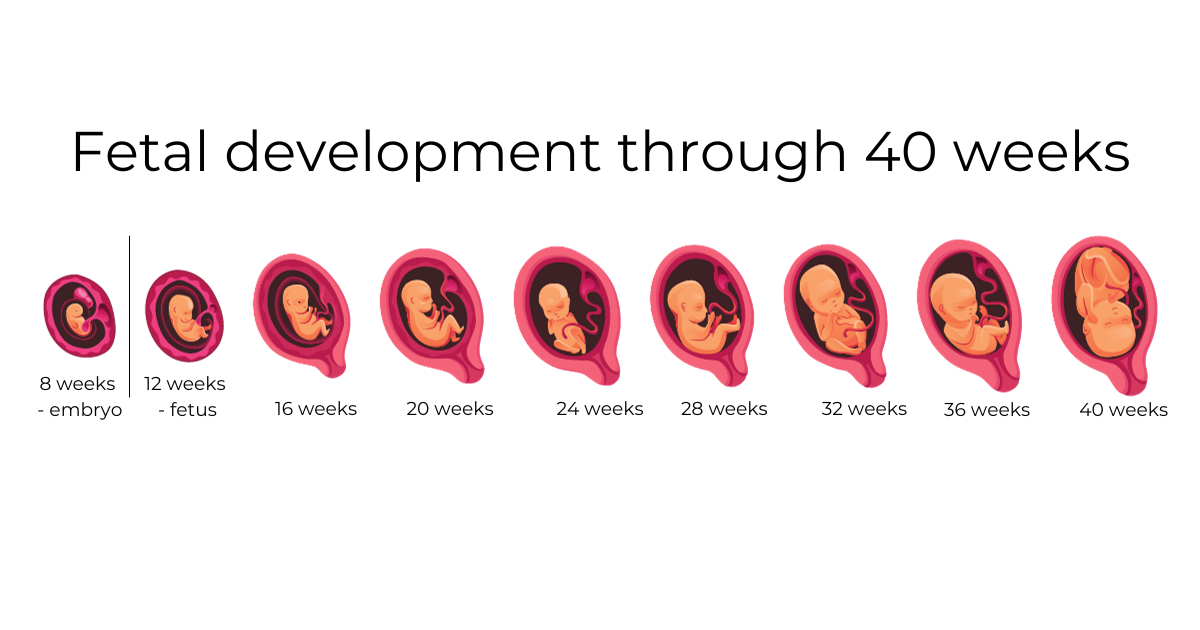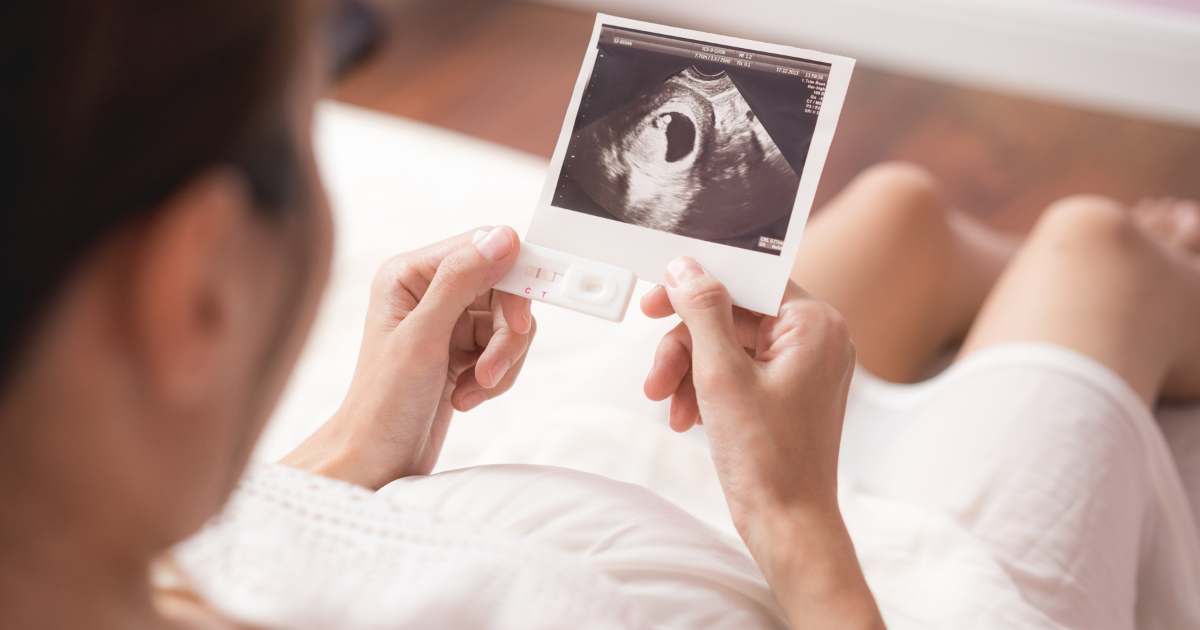
The first twelve weeks of pregnancy are referred to as the “first trimester.” During these first twelve weeks, all of the major organs and systems are formed in the fetus, making a healthy first trimester crucial for normal fetal development[1][2].
Fetal Development in the First Trimester
Once the embryo is implanted in the uterine wall, a few things begin to grow and take place in order for the embryo to develop and survive.
Weeks one to four of pregnancy:
- Amniotic sac: this sac is filled with amniotic fluid and surrounds the fetus throughout the pregnancy. It protects the fetus from injury and also regulates its temperature[1][2]
- Placenta: this is an organ that grows only during pregnancy and allows for the exchange of nourishment and waste products between the fetus and the mother[1][2]
- Umbilical cord: this cord connects the fetus to the placenta and contains two arteries and a vein that carry oxygen and nutrients to the fetus while also removing waste product[1][2]
- Face, eyes, ears, and mouth are forming[1][2]
Weeks five to eight of pregnancy
- Heart is beating[1]
- All major organs like lungs, heart, and ears have formed[1][2]
- Tooth buds begin to form which will later turn into teeth[2]
- Arms and legs are clearly recognizable[1][2]
- Bones, nose, and jaws are developing[1][2]
- The fetus is in constant motion[2]
Weeks nine to twelve of pregnancy
- The embryo is called a fetus after eight weeks gestation[1][2]
- Toes, fingers, finger nails, and eyelids are formed[1][2]
- Movement increases[1][2]
- Urinary and digestive systems are fully functioning[1]
- Genitals are developing[1]
- Voice box begins forming in the trachea[2]
The fetus will be fully formed by the end of the first trimester and is most vulnerable to damage from alcohol, drugs, certain medicines, and illnesses during this time[1][2].

Changes to Your Body in the First Trimester
There are many changes that happen to your body throughout pregnancy in order to support your baby and its development. Every woman experiences these changes in different ways.
Some symptoms that you may experience in the first trimester include:
- Implantation bleeding: light spotting as the fertilized embryo implants in your uterus[1][2]
- An increased amount of estrogen and progesterone that causes tenderness and swelling of your breasts as they prepare for breastfeeding[1][2]
- Your uterus will grow and press on your bladder, rectum, and intestines causing you to urinate more often and may cause constipation[1][2]
- Mood swings similar to those experienced during PMS as hormones change[1][2]
- “Morning sickness,” though nausea and sometimes vomiting can happen at any time of the day[1][2]
- Heartburn, indigestion, and gas due to high levels of progesterone[1][2]
- Fatigue[1][2]
- An increased heart rate as your blood volume increases to provide extra blood flow to your uterus[1][2]
When you find out you’re pregnant, it’s important to connect with an OB/GYN to establish care for the rest of your pregnancy. Your doctor will be able to take care of and monitor you and your baby.
Reach out to the people you trust in your life to establish a support system that can help you navigate the emotional and physical changes that come with pregnancy.
If you think you could be pregnant, we offer free and confidential medical grade pregnancy test verifications and limited obstetric ultrasounds to confirm pregnancy. During these appointments, you’ll have the opportunity to speak one-on-one with Care Clinic’s registered nurse, ask her all the questions you might have, and talk with someone for support.
Sources
- Cleveland Clinic. (2022. August 22). First Trimester. Retrieved from https://my.clevelandclinic.org/health/articles/9699-first-trimester
- Johns Hopkins Medicine. The First Trimester. Retrieved from https://www.hopkinsmedicine.org/health/wellness-and-prevention/the-first-trimester
